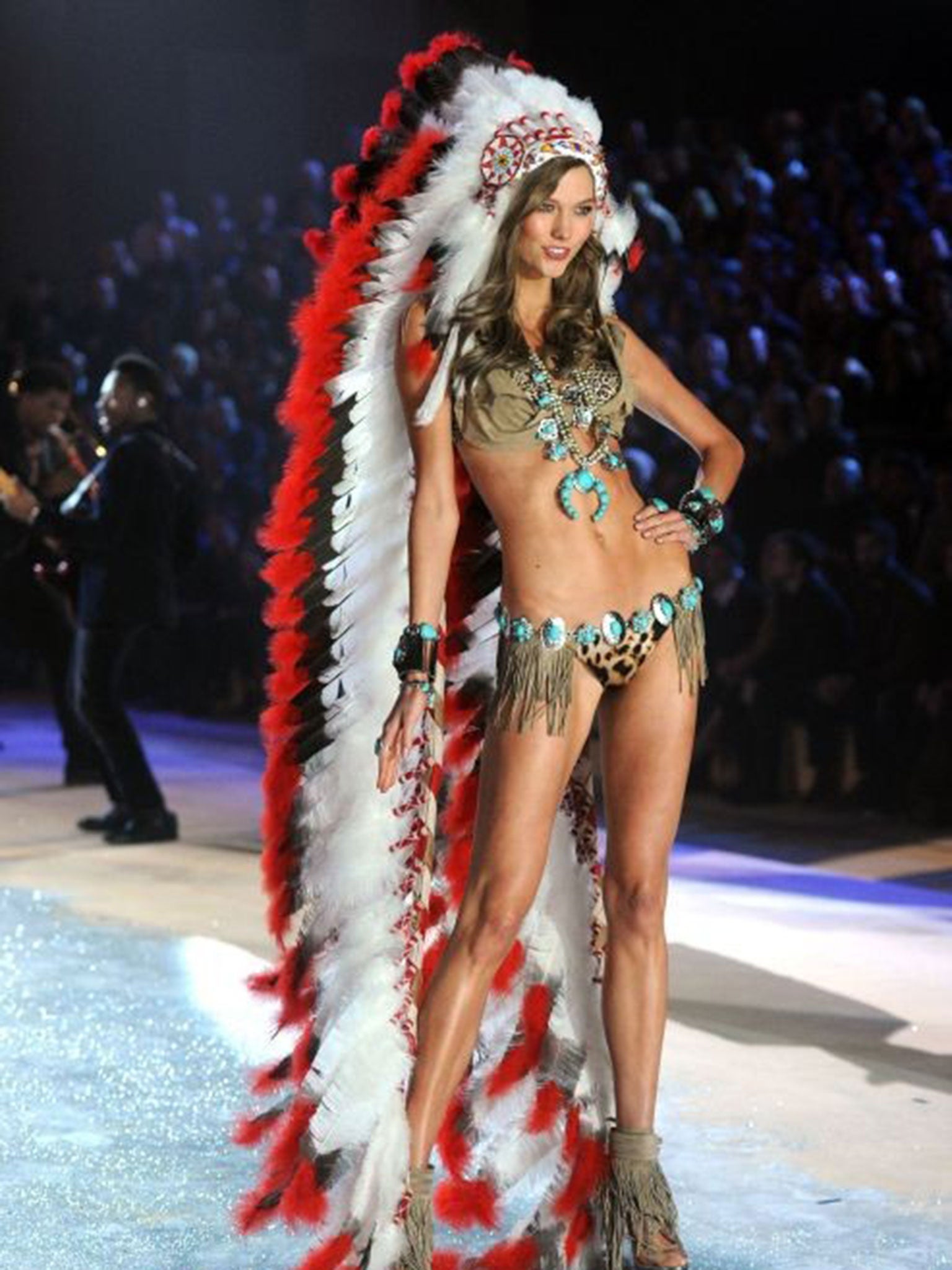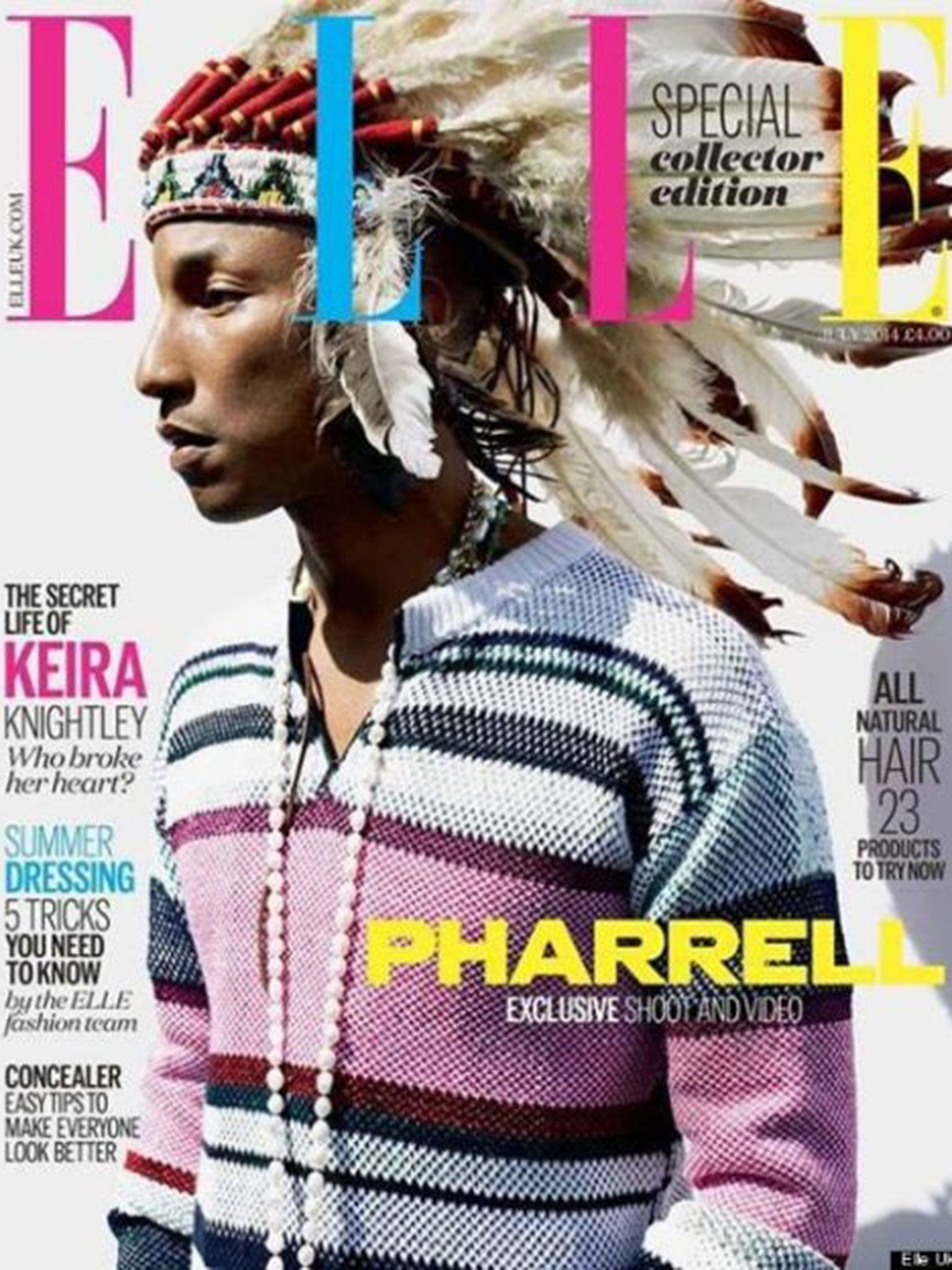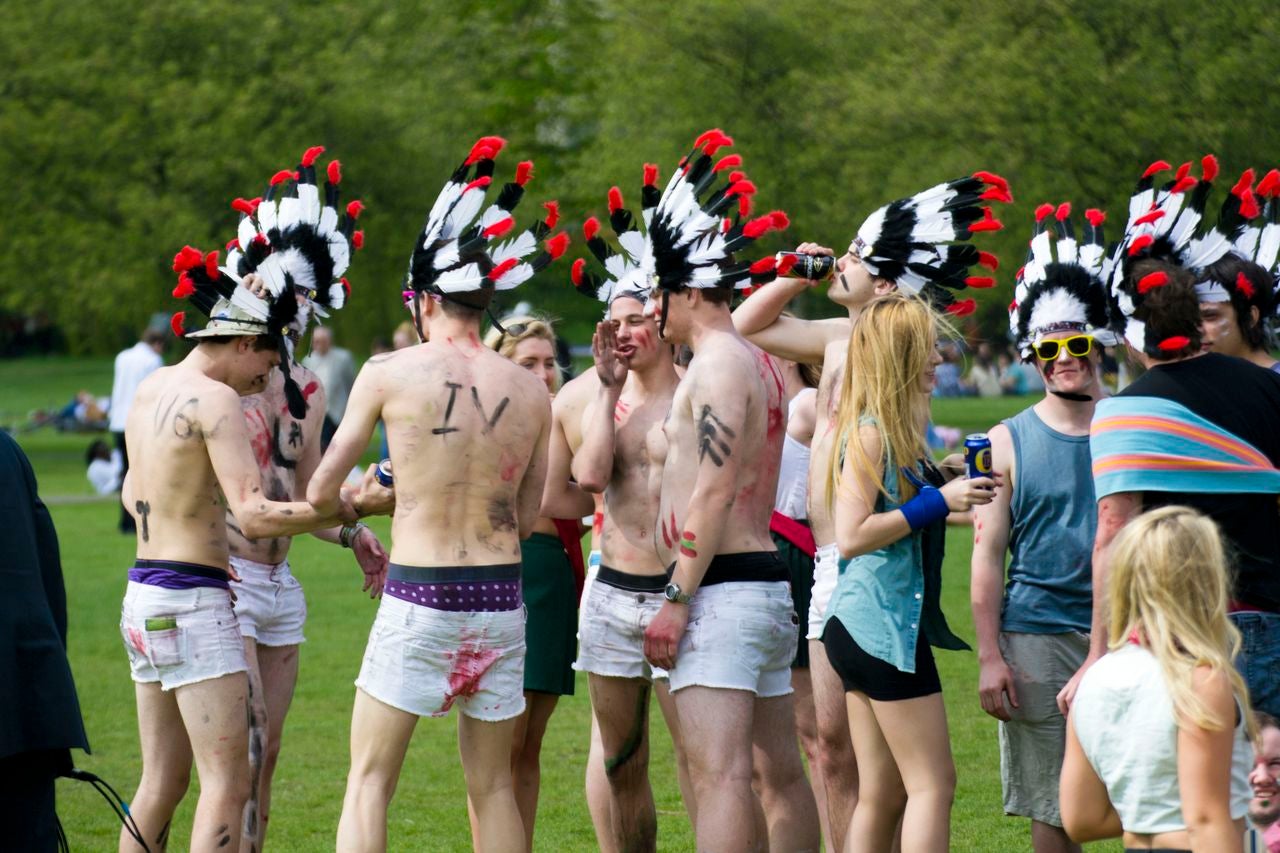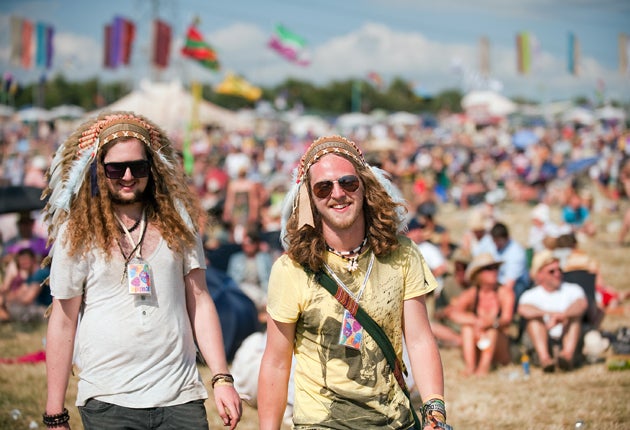Native American headdresses are not fashion accessories
A Canadian festival has banned Native American headwear. Haven't we been here before? Gillian Orr wonders when the fashion world will realise some things really are sacred

Your support helps us to tell the story
From reproductive rights to climate change to Big Tech, The Independent is on the ground when the story is developing. Whether it's investigating the financials of Elon Musk's pro-Trump PAC or producing our latest documentary, 'The A Word', which shines a light on the American women fighting for reproductive rights, we know how important it is to parse out the facts from the messaging.
At such a critical moment in US history, we need reporters on the ground. Your donation allows us to keep sending journalists to speak to both sides of the story.
The Independent is trusted by Americans across the entire political spectrum. And unlike many other quality news outlets, we choose not to lock Americans out of our reporting and analysis with paywalls. We believe quality journalism should be available to everyone, paid for by those who can afford it.
Your support makes all the difference.They have been sported by some of the most influential (and, it would seem, clueless) people in entertainment – including Pharrell Williams, Drew Barrymore and supermodel Alessandra Ambrosio.
But now someone is – fingers crossed – finally putting an end to the trend for wearing native American headdresses as fashion accessories.
At music festivals this particular cultural appropriation is unfortunately as ubiquitous as flower headbands and underbutts, so it makes sense that it has taken one to step up and do the right thing.
So, fed up with the increasing numbers of disrespectful party-goers who deem it appropriate to turn up to mosh and drink beer while sporting a feathered war bonnet, Bass Coast festival, an electronic-music festival in Canada's British Columbia, has banned them outright.
"We understand why people are attracted to war bonnets. They have a magnificent aesthetic," reads a statement from the organisers.
"But their spiritual, cultural and aesthetic significance cannot be separated."

While images such as the one Khloe Kardashian posted to Instagram earlier this year – of her in a huge bonnet – might look like harmless fun, Native American headdresses are a sacred ceremonial artefacts reserved for respected figures in the community.
That Native Americans are a minority group who have been oppressed and exploited only further marks out the insensitivity of stealing such pieces and turning them into mass-marketable playthings.
Cliff Matias, cultural director of the Redhawk Native American Arts Council, called Kardashian's use of the war bonnet "insensitive" and implored the famous not to pretend they are ignorant about the issue.
"It's absolutely terrible that they have no conscience to discontinue to do such things," said Matias.
"But it's also sad. It's really sad that people who are celebrities don't take the responsibility and understand that they are trendsetters and they influence people."
But people in the United States are not the only ones excelling in cultural insensitivity. No doubt spurred on by all the 'slebs stateside, this year I have noticed a definite rise in headdresses at festivals such as Glastonbury and Field Day.
Perhaps the inappropriately feathered festival-goers were taking style tips from former Disney star Vanessa Hudgens, who paraded around Coachella festival wearing one in April.
While the late 2000s might have seen the rise of the "hipster headdress", its roots in fashion go way back. Those Corinne Day shots of a young Kate Moss donning feathers, one of which appeared on the front cover of The Face, have a lot to answer for.
Astonishingly, big-name brands are advertising their ignorance as much as the dopey individuals who are wearing theirs to party in fields in Hampshire.

Last December, Karl Lagerfeld presented his Pre-Fall 2014 Paris-Dallas Métiers d'Art collection which featured Native American headdresses and left some of the more knowing fashion insiders clutching their (Chanel) pearls.
Obviously the French fashion house wasn't paying attention when, just a year earlier, there was an outcry after Victoria's Secret sent the model Karlie Kloss down the runway in jewelled underwear paired with, you guessed it, a huge war bonnet.
And high-street store H&M quickly pulled a line of headdresses from its Canadian branches last year after shoppers were less than impressed. Every incident is quickly followed by a half-hearted apology.
Presumably in response to this madness, Belgian designer Walter van Beirendonck had two men model headdresses that read "STOP RACISM" in his show during men's fashion week in January.

"Natives are not costumes one can take on and off," says Ruth Hopkins of the website Last Real Indians.
"When people dress up in stereotypical 'Indian' garb, they're not only denying the existence of 566 distinct Tribal Nations, they're mocking an entire group of human beings based solely on their race and heritage."
What is especially shocking is the recurring narrative at play; the here-we-go-again of it all. How many people must fauxpologise before the message finally gets through?
Join our commenting forum
Join thought-provoking conversations, follow other Independent readers and see their replies
Comments